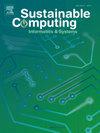Does faster mean greener? Runtime and energy trade-offs in iOS applications with compiler optimizations
IF 5.7
3区 计算机科学
Q1 COMPUTER SCIENCE, HARDWARE & ARCHITECTURE
引用次数: 0
Abstract
Smartphones outnumber people nowadays, requiring efficient energy management. High application energy use leads to faster battery drain and frequent recharging, negatively impacting both battery life and the environment. This cycle also contributes to rising electronic and chemical waste due to discarded mobile phone batteries. Compiler optimization flags may play a crucial role in mitigating these issues by optimizing software performance. However, there has been little research on examining how compiler optimization flags impact the energy consumption of smartphone applications. This work presents an empirical study on the effect of the most aggressive iOS compiler optimizations on runtime, power consumption, and energy consumption across six different iOS applications. For each application, we developed a benchmark focused on the specified category we aimed to study. Our results show that reducing application runtime does not always directly correlate with improved energy consumption. In fact, we observed that optimizations aimed at enhancing runtime performance often come at an energy cost in the applications studied, highlighting a trade-off between runtime and energy consumption. For example, we found that using -Ounchecked in Swift, combined with -Oz from LLVM in the GhostRun video game, increases energy consumption by 34%, despite improving runtime performance by 9%.
更快就意味着更环保吗?使用编译器优化的iOS应用程序中的运行时和能量权衡
如今,智能手机的数量超过了人口数量,这就需要高效的能源管理。高应用能耗导致电池消耗更快,充电频繁,对电池寿命和环境都有负面影响。这种循环也导致了废弃手机电池造成的电子和化学废物的增加。编译器优化标志可以通过优化软件性能来缓解这些问题。然而,很少有关于编译器优化标志如何影响智能手机应用程序能耗的研究。本文对六个不同的iOS应用程序中最激进的iOS编译器优化对运行时、功耗和能耗的影响进行了实证研究。对于每个应用程序,我们都针对要研究的特定类别开发了基准测试。我们的结果表明,减少应用程序运行时并不总是与改进的能耗直接相关。事实上,我们观察到,在所研究的应用程序中,旨在增强运行时性能的优化通常是以能源成本为代价的,这突出了运行时和能源消耗之间的权衡。例如,我们发现在Swift中使用-Ounchecked,在ghostrn视频游戏中使用LLVM中的-Oz,尽管运行时性能提高了9%,但能耗增加了34%。
本文章由计算机程序翻译,如有差异,请以英文原文为准。
求助全文
约1分钟内获得全文
求助全文
来源期刊

Sustainable Computing-Informatics & Systems
COMPUTER SCIENCE, HARDWARE & ARCHITECTUREC-COMPUTER SCIENCE, INFORMATION SYSTEMS
CiteScore
10.70
自引率
4.40%
发文量
142
期刊介绍:
Sustainable computing is a rapidly expanding research area spanning the fields of computer science and engineering, electrical engineering as well as other engineering disciplines. The aim of Sustainable Computing: Informatics and Systems (SUSCOM) is to publish the myriad research findings related to energy-aware and thermal-aware management of computing resource. Equally important is a spectrum of related research issues such as applications of computing that can have ecological and societal impacts. SUSCOM publishes original and timely research papers and survey articles in current areas of power, energy, temperature, and environment related research areas of current importance to readers. SUSCOM has an editorial board comprising prominent researchers from around the world and selects competitively evaluated peer-reviewed papers.
 求助内容:
求助内容: 应助结果提醒方式:
应助结果提醒方式:


